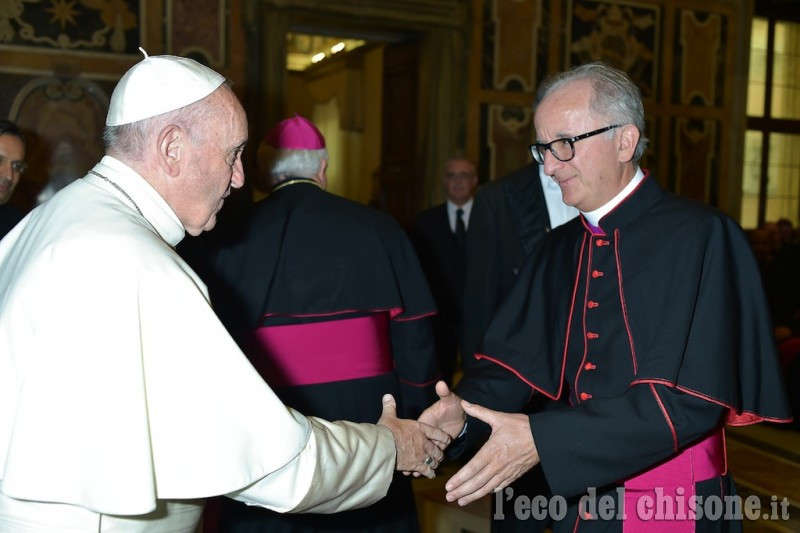Bishop Derio Olivero of the Diocese of Pinerolo (above) announced that whenever the Nicene Creed was to be said during Mass from here forward, it would be said in silence to avoid offending unbelievers. Note: This is a decision that will affect the Catholic Diocese of Pinerole only.
The Nicene Creed was adopted in 325 at the Council of Nicea and then amended in 381 at the First Council of Constantinople. It forms the substance of mainstream Christian doctrine, although it is not an exhaustive summary of the Christian faith. Nonetheless, the creed has been used for 1700 years to articulate the basics of Christian orthodoxy.
The creed reads…
We believe in one God,
the Father almighty,
maker of heaven and earth,
of all things visible and invisible.And in one Lord Jesus Christ,
the only Son of God,
begotten from the Father before all ages,
God from God,
Light from Light,
true God from true God,
begotten, not made;
of the same essence as the Father.
Through him all things were made.
For us and for our salvation
he came down from heaven;
he became incarnate by the Holy Spirit and the virgin Mary,
and was made human.
He was crucified for us under Pontius Pilate;
he suffered and was buried.
The third day he rose again, according to the Scriptures.
He ascended to heaven
and is seated at the right hand of the Father.
He will come again with glory
to judge the living and the dead.
His kingdom will never end.And we believe in the Holy Spirit,
the Lord, the giver of life.
He proceeds from the Father and the Son,
and with the Father and the Son is worshiped and glorified.
He spoke through the prophets.
We believe in one holy catholic and apostolic church.
We affirm one baptism for the forgiveness of sins.
We look forward to the resurrection of the dead,
and to life in the world to come. Amen.
According to LifeSite News, “Bishop Derio Olivero of the Piedmontese diocese of Pinerolo announced at the end of his homily on January 6 that the profession of the Creed would be replaced with a moment of silence so that everyone could quietly recite their own beliefs.”
In the audience were apparently some Eastern Orthodox, Waldenses, and random unbelievers who would take issue with the creed. Olivero did not want to offend them.
Diocesan representatives sought to justify the bishop’s silencing of the Creed on grounds that it was “for the sake of better internalizing” it.
However, the priest said, “I always respect the liturgy, but on the occasion of this Mass there were (members of) other confessions in the church and I thought that Catholics could say the Creed in silence and those instead, like the Waldensians and Orthodox, could proclaim something in which to believe. All in silence, but I reaffirm my absolute fidelity to the Missal.”
In Roman Catholicism, the creed is to be either sung by the priest or read along with by the congregation. This breaks that tradition.











